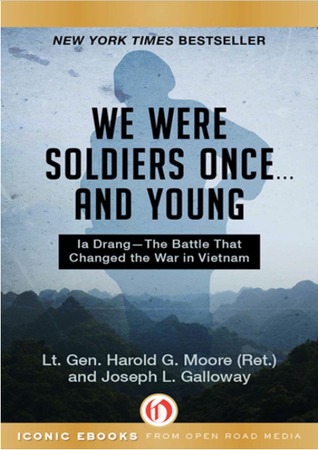More on this book
Community
Kindle Notes & Highlights
Read between
April 7 - April 15, 2020
We went to war because our country asked us to go, because our new president, Lyndon B. Johnson, ordered us to go, but more importantly because we saw it as our duty to go. That is one kind of love.
We discovered in that depressing, hellish place, where death was our constant companion, that we loved each other. We killed for each other, we died for each other, and we wept for each other. And in time we came to love each other as brothers. In battle our world shrank to the man on our left and the man on our right and the enemy all around. We held each other’s lives in our hands and we learned to share our fears, our hopes, our dreams as readily as we shared what little else good came our way.
The country that sent us off to war was not there to welcome us home. It no longer existed.
Those who were, miraculously, unscratched were by no means untouched. Not one of us left Vietnam the same young man he was when he arrived.
This story, then, is our testament, and our tribute to 234 young Americans who died beside us during four days in Landing Zone X-Ray and Landing Zone Albany in the Valley of Death, 1965. That is more Americans than were killed in any regiment, North or South, at the Battle of Gettysburg, and far more than were killed in combat in the entire Persian Gulf War.
All the names, 305 of them including one Air Force pilot, are engraved on the third panel to the right of the apex, Panel 3-East, of the Vietnam Veterans Memorial in Washington, D.C., and on our hearts. This is also the story of the suffering of families whose lives were forever shattered by the death of a father, a son, a husband, a brother in that Valley.
Only first-place trophies will be displayed, accepted, or presented in this battalion. Second place in our line of work is defeat of the unit on the battlefield, and death for the individual in combat. No fat troops or officers. Decision-making will be decentralized: Push the power down. It pays off in wartime. Loyalty flows down as well. I check up on everything. I am available day or night to talk with any officer of this battalion. Finally, the sergeant major works only for me and takes orders only from me. He is my right-hand man.
In the American Civil War it was a matter of principle that a good officer rode his horse as little as possible. There were sound reasons for this. If you are riding and your soldiers are marching, how can you judge how tired they are, how thirsty, how heavy their packs weigh on their shoulders?
You had to get on the ground with your troops to see and hear what was happening. You have to soak up firsthand information for your instincts to operate accurately. Besides, it’s too easy to be crisp, cool, and detached at 1, 500 feet; too easy to demand the impossible of your troops; too easy to make mistakes that are fatal only to those souls far below in the mud, the blood, and the confusion.
A commander in battle has three means of influencing the action: Fire support, now pouring down in torrents; his personal presence on the battlefield; and the use of his reserve.
“No one starts a war—or rather, no one in his senses ought to do so—without first being clear in his mind what he intends to achieve by that war and how he intends to conduct it.” Epilogue We few, we happy few, we band of brothers; For he to-day that sheds his blood with me Shall be my brother. —SHAKESPEARE, Henry V, Act IV, Scene 3


